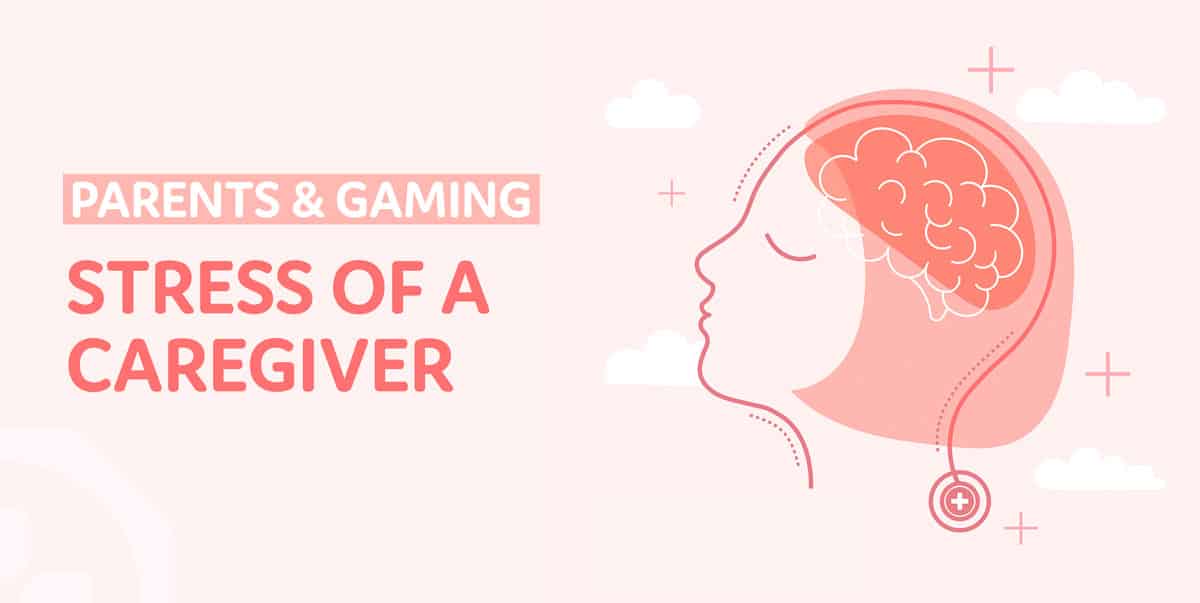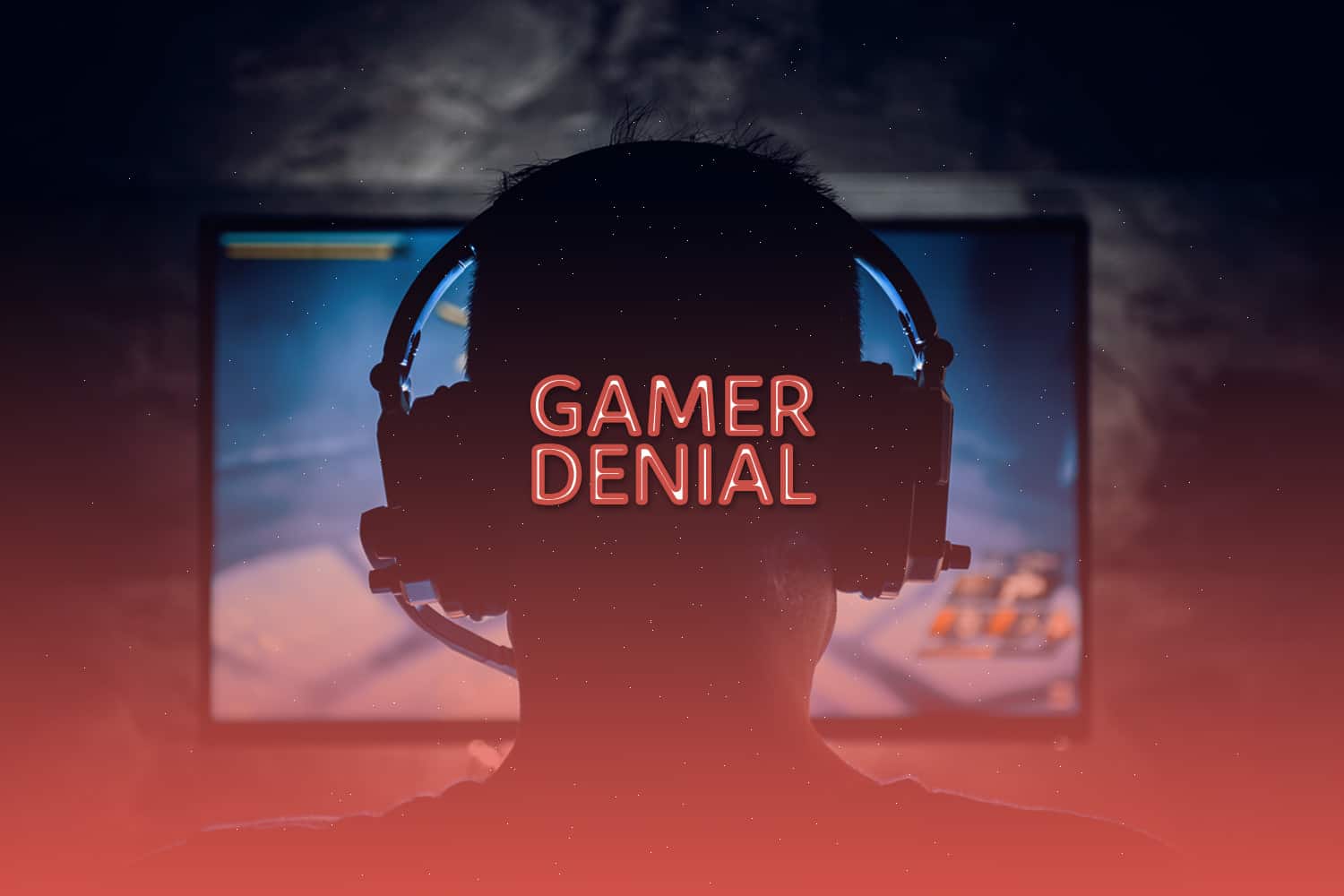
Caregiver Stress: Excessive Gaming
When a child is struggling to regulate the time they dedicate to playing video games, a caregiver needs to step in and try to help the child control their problematic obsession. This role is often taken on by one or both parents. There may also be a therapist or coach supporting the child and/or family with harm reduction.
Regardless of the form in which these caregivers show up, there can be enormous stressors that come with this task.
I am a caregiver of a recovered problematic gamer.
In my son’s worst days, as a gaming addict trying to move towards recovery, I had to show up as the best version of myself.
He needed constant monitoring, healthy food, a physical fitness accountability buddy, someone he could vent to, someone who could be stronger for him on his weakest days, a trusted listener, and a life saver.
Read: How I Saved My Son From His Gaming Addiction
What is Caregiver Stress?
A caregiver is anyone who provides help or care to someone in need. With technology becoming central in our lives, normal parental responsibilities and caregiving now include supporting healthy tech and video game habits.
During the times that my son couldn’t manage or regulate his gaming, it was up to me to instill strict rules and guidelines for him to follow. And although I knew it was right to be firm with my strategies for recovery, it didn’t come easy for me. I had a list of concerns for his health and safety, as well as my own.
For any caregiver, there is also great fear for the problematic gamer, surrounding the addiction and recovery journey.
- Fear of increased anxiety and depression of the gamer
- Fear that the gamer will turn on and hate their caregiver
- Fear of suicide
- Fear that the gamer will never mature and become a capable independent adult
- Fear the gamer will fail in school or lose their job
- Fear the gamer will become physically ill due to poor diet, excessive consumption of caffeinated drinks , consumption of alcohol or drugs, poor grooming, lack of exercise, and no fresh air and sunshine
- Fear of volatile and violent behaviour towards the caregiver/parents
- Fear that the gamer will never be free of their addiction
- Fear of a long term severed relationship from the gamer’s family
- Fear of caregiver burnout
Caregiver stress can also come in other forms including physical, mental and emotional exhaustion. Did you know that 40-70% of family caregivers have clinically significant symptoms of depression? And a quarter-to-half of these caregivers meet the diagnostic criteria for major depression.
Other signs of caregiving stress include depression, withdrawal, anxiety, anger, difficulty concentrating, a change in your eating habits, insomnia, and other health-related problems. If you are caregiving in any way it is important that you have support and ask for help.
How to Cope with Caregiver Stress?
What is most important for a caregiver is that they also have a support system helping them to self-nurture. I definitely needed these supports as a parent, but also now, as a coach, I need to be sure my needs are met. By taking care of me, I am able to show up for the gamer as a stronger support system.
- A supervisor, friend, or partner is needed as an ally to check in with a caregiver
- Proper rest, exercise, and a healthy diet is necessary
- A spiritual practice of faith can help to feel less alone and trust in the process
- Balance and break time away from work is essential
- Mindfulness practice to let go of the inner mind chatter and concern
- Access to police and mental health supports, as needed
Personally, one of the greatest gifts for me is my community of girlfriends, who know and understand my work as a coach, as well as my responsibilities as a parent of a recovered son who requires a source for accountability. I know that on my darkest days of stress, I always have a shoulder to prop me back up.
In the back of my mind, is a quote one of my friends once posed to me, “Whose mothering the mother?” That question always helps keep me practicing my own self-care.
You Are Not Alone
Caregiving is challenging and it can be difficult to ask for help, which can lead to further isolation, withdrawal and depression. But you can have support and it’s ok to ask for it. We have a wonderful group of parents and loved ones who will lend an ear and be there with you along your journey. Join the Game Quitters Parent Support Group on Facebook today.
 Written by: Elaine Uskoski is an author, speaker and coach for parents and families on video game addiction. Elaine’s second book, “Cyber Sober; A Caregiver’s Guide to Video Gaming Addiction” has now also been published. She is a Canada Clinical Partnership Specialist for INTENTA. Elaine has been featured by many media outlets including CTV W5, CBC’s The National, CHCH TV, National Geographic, The Wall Street Journal, and CBC Radio. Learn more on her website ElaineUskoski.com
Written by: Elaine Uskoski is an author, speaker and coach for parents and families on video game addiction. Elaine’s second book, “Cyber Sober; A Caregiver’s Guide to Video Gaming Addiction” has now also been published. She is a Canada Clinical Partnership Specialist for INTENTA. Elaine has been featured by many media outlets including CTV W5, CBC’s The National, CHCH TV, National Geographic, The Wall Street Journal, and CBC Radio. Learn more on her website ElaineUskoski.com
